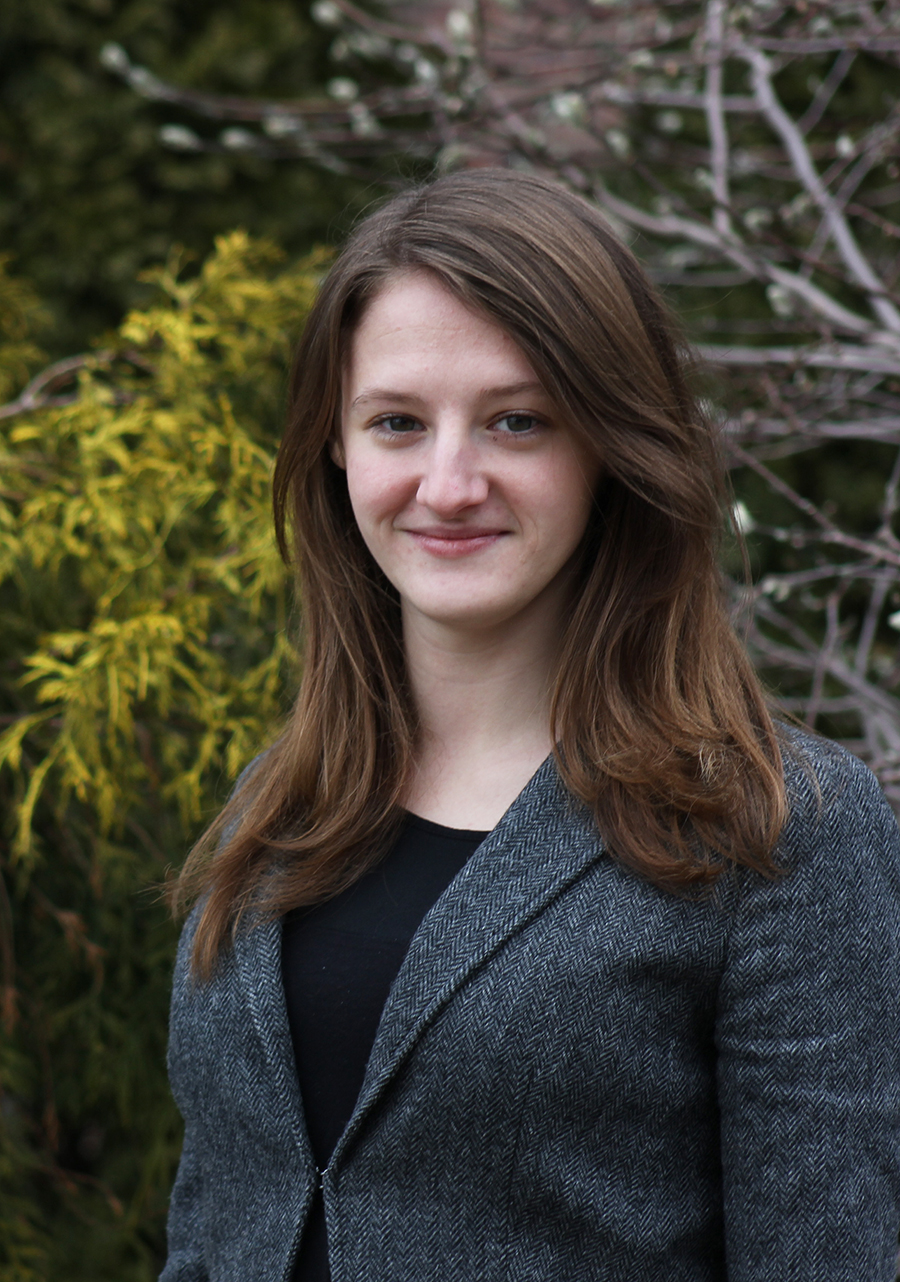A few years ago, hundreds of people filled Sauder Concert Hall for the annual Music Gala during Homecoming weekend. All Maryn Munley needed to do was move the restored Steinway grand piano, worth $120,000, to the center of the stage. By herself.
Matthew Hill, a Goshen College music professor, was waiting in the wings to enter and play a piece by Beethoven.“Well, I’m a fairly petite person,” said Munley, the performance venue production manager for Goshen College. “So usually, it takes a little bit more muscle than just me to get that piano rolling.”
The stage was set up for the orchestra — filled with music stands, cellos and anything else that was needed. In order get from point A to point B pushing a gigantic piano, Munley had to move in between the chairs and the edge of the stage.
“I was wheeling [the Steinway], you could tell I had…6 inches or 8 inches of space between me and the edge of stage,” she said, “which for me, felt very comfortable.”
Suddenly, as she pushed the piano at a momentous pace, an audible and extreme inhale echoed throughout the audience.
Even though she felt in control of the situation, the audience seemed to think otherwise. With a chuckle, she said that ever since then she moves the piano at a slower pace during the transitions in shows.
Munley, a 2014 Goshen College alumna, has not been working this job for a long time.
She graduated majoring in theater with a concentration in scenic design, but she dove into working with different event venues such as Rieth Recital Hall, Sauder Concert Hall and the John S. Umble Center. She supervises events and hires and trains the student staff.
One time, before a show, Munley recalls training new staff and she said, regarding the students, “I think they were a little overwhelmed or a little anxious and I just…didn’t even think ‘Oh yeah, I guess this is their first time…running a Sauder show.’”
Munley continued to explain that she is so used to doing tasks and moving things around, she forgets what it is like when someone is new and does not know the ropes of a Sauder Hall concert.
“Part of my job is being able to react quickly and efficiently, but also effectively in those situations where it’s suddenly like, ‘Oh my gosh, we need this. And we need it immediately’ and a thousand people are going to watch me do it,” Munley said.
For example, last Kick-Off there was an unexpected change in plans.
Two performers walked on stage while the backstage crew, including Munley, were setting things up.
One of the performers suddenly started whispering frantically into Munley’s ear. “I have kind of really bad hearing in one ear, so I couldn’t really make out what he said and eventually I realized the piano needed power,” said Munley.
What had happened was that the performers decided to switch keyboards last minute. “It didn’t sound right or it wasn’t working right [in rehearsal],” Munley explained.
Munley ran off stage and grabbed the noticeably bright red extension cord, plugged it into the wall and then rushed to the stage to connect it to the piano, almost knocking a guitar or two over.
She said it felt like an eternity: “The other thing about being on stage, 10 seconds of silence feels so long when you’re backstage.”
But Munley is not the only one who has to work with last minute changes. She works as a go-between for the performers.
In other words, if performers, whether visiting or not, need anything or are communicating with event venues, they have to go through her.
Munley explained that she advances the show, which means finding what anyone needs from performers to staff.
“Almost all of the people we get are awesome,” she said. “They’re just good people.”
One guest performer stuck out in Munley’s mind: Garrison Keillor, the author of “A Prairie Home Companion.” Munley recalled that she was quite intimidated by Keillor, but he was fun. She describes the script being rehearsed was pretty fluid.
“And it’s really whatever he wants,” Munley added.
So imagine her bafflement when Keillor walks off stage during the performance, rewrites a skit or writes a new skit, prints it out and tells the stage manager to distribute it among performers and backstage crew.
Usually, in performances, everyone sticks to a schedule, but not Keillor.
“He really is a creative genius to be able to do that and juggle [a thousand people in the audience and thinking about a new skit],” Munley said.
There was another performer that may have been a little too creative.
Rhiannon Giddens came to perform at Sauder Hall as a part of the Performing Arts Series.
Giddens wanted to use haze in her concert, so Munley had to arrange for haze to fill the concert hall.
As soon as it was full, the haze started to pour into the lobby and people started to panic.
“I had to keep politely saying, ‘Yes, it is hazy in here, but it’s on purpose…I promise you, if there was a fire, I would be much more concerned,’” Munley said, laughing.
Munley concluded, “Most of the time, things go at least a little bit more smoothly. But those smooth concerts don’t make good stories.”
She definitely does have her fair share of stories. So many that they all start to run together. So much happens, one would think it is too stressful of a job.
But to Munley, she would not trade it for anything. “It’s a blast,” she said, “It’s an intense job, but I’m never bored.”



